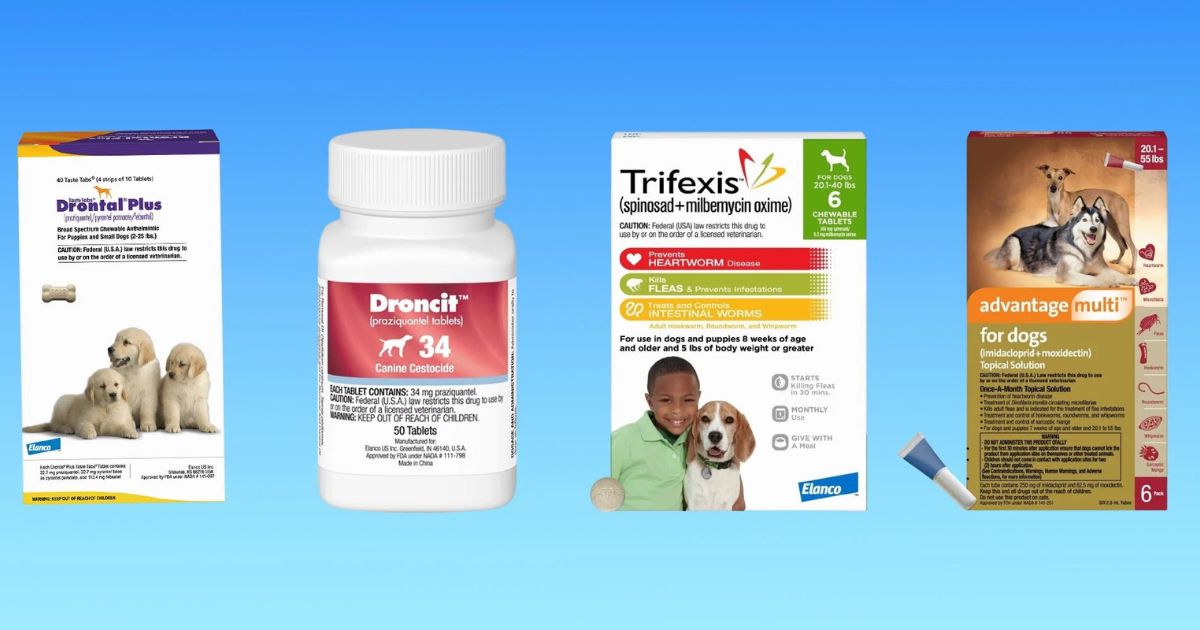Introduction
Keeping your dog healthy is one of the top priorities for any pet owner. Among the many aspects of pet care, deworming is one of the most essential. Intestinal worms like roundworms, hookworms, tapeworms, and whipworms can harm your dog’s health and, in somewhere cases, pose risks to humans as well. That’s why veterinarians emphasize regular deworming as part of preventive healthcare. But with so many options available, pet owners often wonder: What is the best vet recommended dewormer for dogs?
In this article, we’ll cover everything you need to know about vet-recommended dewormers for dogs, why deworming is important, different types of worms, the best products, dosage guidelines, and more. For general information about deworming and parasites, you can check Wikipedia’s article on Helminthiasis.
Why Deworming is Essential for Dogs
Dogs are naturally curious animals that sniff and lick almost everything around them. This puts them at high risk of ingesting parasite eggs or larvae from:
- Contaminated soil
- Feces of other animals
- Raw or undercooked meat
- Fleas or intermediate hosts
If not treated, worms can lead to:
- Poor coat condition
- Weight loss
- Diarrhea or vomiting
- Anemia
- Lethargy
- Severe infections in puppies that can even be fatal
Some intestinal worms can also transmit to humans (a condition known as zoonosis), making deworming essential for both pet and family health.
Common Types of Intestinal Worms in Dogs
Before choosing a dewormer, it’s important to know the types of worms that commonly infect dogs:
1. Roundworms (Toxocara canis)
- Most common in puppies.
- Can cause pot-bellied appearance, vomiting, and diarrhea.
2. Hookworms (Ancylostoma caninum)
- Attach to the intestinal wall and suck blood.
- Cause anemia and weakness.
3. Tapeworms (Dipylidium caninum)
- Often transmitted through fleas.
- Cause mild digestive issues.
4. Whipworms (Trichuris vulpis)
- Affect the large intestine.
- Cause bloody diarrhea and weight loss.
5. Heartworms
- Spread by mosquitoes.
- Affect the heart and lungs (not treated by standard dewormers).
To learn more about these parasites, you can refer to Wikipedia’s page on Parasitic worms.
What is a Dewormer?
A dewormer (also called an anthelmintic) is a medication used to kill or expel internal parasites from the body. Dewormers come in various forms such as:
- Tablets
- Chewables
- Liquids
- Injectable medications
Some are broad-spectrum (work against multiple worms), while others target specific parasites.
Why Choose Vet Recommended Dewormers?
While many over-the-counter dewormers are available, vet-recommended dewormers ensure:
- Correct dosage based on your dog’s weight and age.
- Safety and efficacy against the right type of worm.
- Lower risk of side effects.
- Proper deworming schedule for prevention and treatment.
Best Vet Recommended Dewormers for Dogs
Here are some of the most trusted and widely recommended dewormers by veterinarians:
1. Drontal Plus
- Active Ingredients: Praziquantel, Pyrantel Pamoate, Febantel.
- Targets: Roundworms, hookworms, whipworms, and tapeworms.
- Form: Chewable tablet.
- Pros:
- Broad-spectrum coverage.
- Easy to administer.
- Cons:
- Prescription required.
2. Panacur C (Fenbendazole)
- Active Ingredient: Fenbendazole.
- Targets: Roundworms, hookworms, whipworms, and some tapeworms.
- Form: Powder (can be mixed with food).
- Pros:
- Safe for puppies and pregnant dogs.
- Treats some protozoal infections like Giardia.
- Cons:
- Requires multiple doses over several days.
3. Interceptor Plus
- Active Ingredients: Milbemycin oxime and Praziquantel.
- Targets: Intestinal worms and prevents heartworm disease.
- Form: Flavored chewable.
- Pros:
- Heartworm prevention plus deworming.
- Monthly dosing.
- Cons:
- Requires prescription.
4. Sentinel Spectrum
- Active Ingredients: Milbemycin oxime, Lufenuron, and Praziquantel.
- Targets: Roundworms, hookworms, whipworms, tapeworms, and prevents fleas.
- Form: Chewable.
- Pros:
- Covers multiple parasites.
- Monthly administration.
- Cons:
- Vet prescription needed.
5. Heartgard Plus
- Active Ingredients: Ivermectin and Pyrantel.
- Targets: Heartworm prevention plus roundworms and hookworms.
- Form: Beef-flavored chewable.
- Pros:
- Prevents heartworms and intestinal worms.
- Cons:
- Does not cover tapeworms or whipworms.
How Often Should Dogs Be Dewormed?
Puppies:
- Start at 2 weeks of age.
- Repeat every 2 weeks until 12 weeks old.
- Then monthly until 6 months old.
Adult Dogs:
- Every 3 months for general deworming.
- Monthly if on combined heartworm and intestinal parasite preventives.
Pregnant or Lactating Dogs:
- Deworm before breeding and after whelping as per vet’s advice.
Signs Your Dog May Need Deworming
- Visible worms in stool or vomit.
- Scooting on the ground.
- Pot-bellied appearance in puppies.
- Weight loss despite good appetite.
- Dull coat.
- Diarrhea or vomiting.
If you notice these signs, consult a veterinarian immediately for a fecal exam and appropriate deworming treatment.
Are There Any Side Effects of Dewormers?
Most vet-recommended dewormers are safe, but mild side effects may include:
- Vomiting
- Diarrhea
- Drooling
- Temporary loss of appetite
Serious reactions are rare but should be reported to your vet.
Safety Tips for Deworming
- Always follow the dosage instructions provided by the veterinarian.
- Do not use cat dewormers for dogs (and vice versa).
- Wash hands after handling feces.
- Clean the dog’s bedding and living area to prevent re-infection.
Can Humans Get Worms from Dogs?
Yes, some parasites like roundworms and hookworms are zoonotic, meaning they can infect humans. Children are particularly at risk. Regular deworming of your dog reduces this risk significantly.
Natural Alternatives – Do They Work?
Some pet owners consider natural remedies like pumpkin seeds or herbal mixes. While these may help in mild cases, they are not as effective as vet-approved medications and should never replace professional treatment.
Cost of Vet Recommended Dewormers
- Oral tablets: $10 – $50 per dose (depending on weight and brand).
- Combination preventives: $30 – $70 monthly.
- Fecal exam: $25 – $50.
Investing in proper deworming saves money on future health complications.
Conclusion
Deworming is a critical part of your dog’s health care routine. Using a vet recommended dewormer for dogs ensures your pet is protected from harmful parasites, stays healthy, and reduces the risk of transmission to humans. Whether you choose Drontal Plus, Panacur C, or a combination product like Interceptor Plus, always follow your veterinarian’s guidance for the best results.




